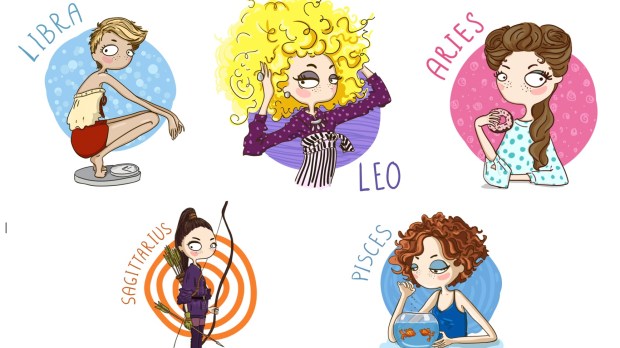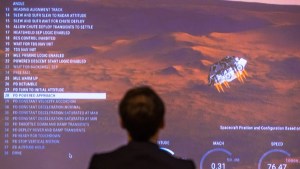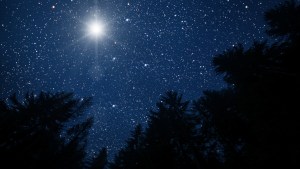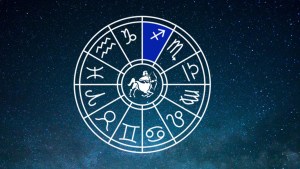Lenten Campaign 2025
This content is free of charge, as are all our articles.
Support us with a donation that is tax-deductible and enable us to continue to reach millions of readers.
“Today, astrology is enjoying a surge in popularity.” So says Carole Taylor in her 2020 book The Secrets of Astrology: A complete guide to Sun signs, planets, houses, and more. There certainly is a surge of new books about astrology oriented toward young people, and especially toward young women.
Secrets of Astrology is colorful and heavily illustrated, and my local library catalogs it in the “juvenile” section. There we also find The Junior Astrologer’s Handbook: A Kid’s Guide to Astrological Signs, the Zodiac, and More. There is a collection of 12 books, one for each of the signs of the zodiac, subtitled It’s Written in the Stars; the vast majority of the illustrations of people here feature young women. There is Astrology for Black Girls: A Beginner’s Guide for Black Girls Who Look to the Stars. All of these have been published since 2019. And the publishers are prominent enough to list an address on either Broadway or the Avenue of the Americas in New York City.
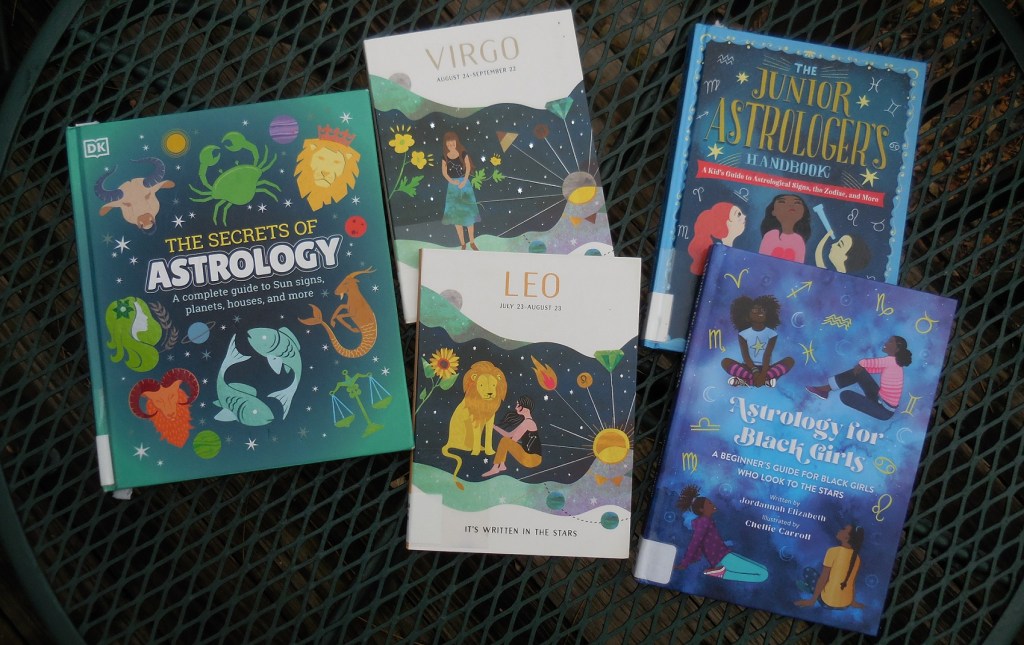
All of these books pretend that, somehow, astrology is connected to what is going on in the sky. For example, the It’s Written in the Stars books all open with,
Astrology is a powerful tool for self-awareness. The idea that we are all connected — that the shifting energies of the Sun, Moon, and planets above affect us here on Earth — is an ancient and philosophical belief. Astrology isn’t fortune-telling — it can’t predict your future and it doesn’t deal in absolutes. It simply says that you are part of the universe around you, and by studying the stars, it’s possible to learn more about yourself.
It’s not written in the stars
But this pretense does not stand up to scrutiny. Some basic knowledge of actual astronomy (a science that is real study of the real sky) shows that astrology is not written in the stars at all.
For example, the full title of the It’s Written volume for those young women who are “Leos” is Leo, July 23-August 23: It’s Written in the Stars. The dates refer to the Leo “Sun sign,” as all the books explain. It’s Written goes on to say that your Sun sign “tells you which of the 12 constellations of the zodiac the Sun was moving through on the day you were born.” Thanks to Earth’s motion around the Sun, the Sun appears to travel over the course of a year along a path in the sky called the “ecliptic” that marks the plane of Earth’s orbit around the Sun; this path takes the Sun through all the constellations of the zodiac.
It’s Written says the Sun sign signals “the essence of who you are and symbolizes the potential of what you can achieve.” But guess what? The Sun is not, in fact, in Leo for those born between 23 July and 23 August.
It’s Written has tables for determining astrological information for those born between 1995 and 2006 (inclusive). Let’s consider the center of that range — the year 2000. The figure below shows the location of the Sun on the ecliptic on July 23, 2000, and on August 23. We see that during most of the supposed “Leo” period, the Sun was not moving through the constellation of Leo! Rather, it was moving through Cancer.
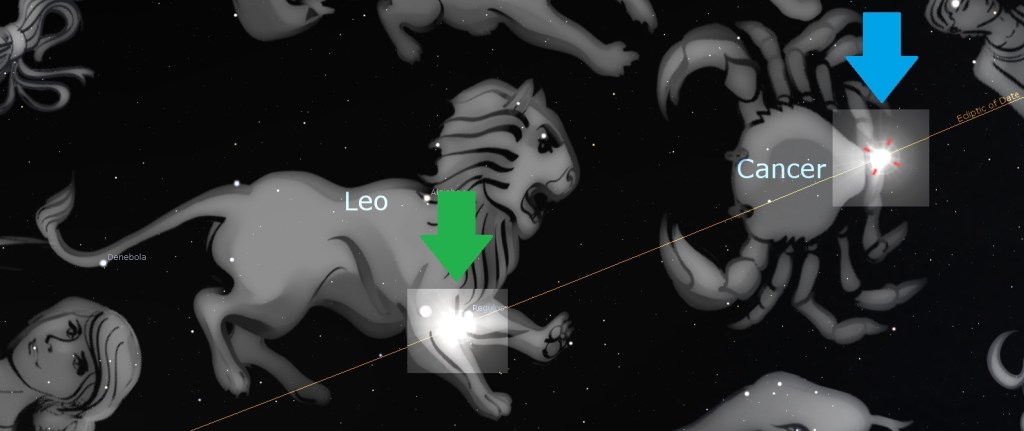
Why is this? Because astrologers are stuck in ancient times. They ignore the long-term effect of the wobble of Earth’s axis that has caused the zodiac constellations to move significantly along the ecliptic versus the equinoxes since ancient times. Over the centuries, that effect also caused the date of Easter to move away from being near Passover in the Spring (which is linked to the Spring equinox). This eventually prompted the Church to reform the calendar back in the 16th century, creating the Gregorian calendar we all use today. The Gregorian calendar recognizes the reality of what is going on in the sky — astrology does not.
The Gregorian calendar recognizes the reality of what is going on in the sky — astrology does not.
We can see this by looking at the dates of July 23 to August 23 in the year 200 (below), back in the heyday of the Roman Empire, instead of in the year 2000. We see that those dates once did reasonably mark out the period when the Sun was moving through Leo.
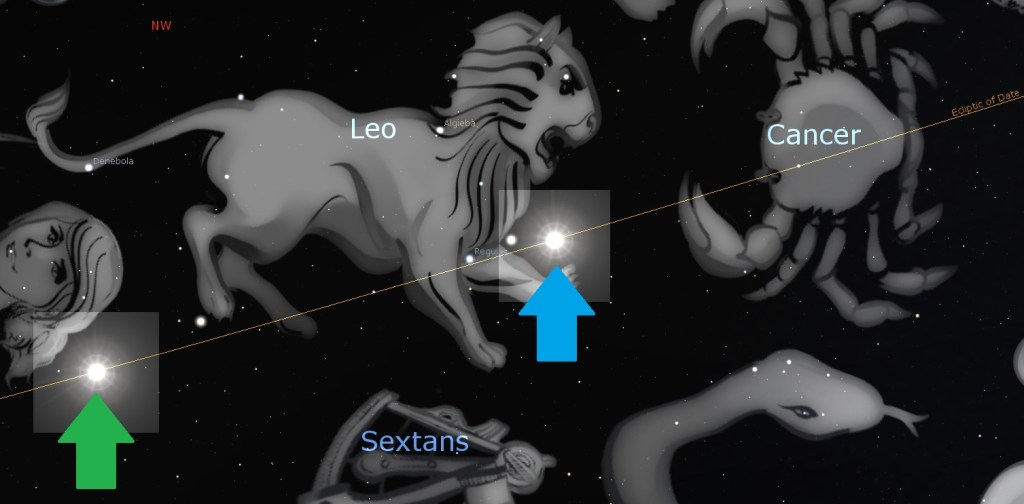
Now let’s consider a young woman, “Jane Doe,” born just after noon on August 1, 2006. It’s Written says that Jane is a Leo — that the Sun was moving through that constellation on the day she was born. In fact, on August 1, 2006, the sun was squarely in the middle of Cancer (below left). But if Jane had been born during the Roman Empire, on August 1, 200, then the Sun would have been squarely in the middle of Leo (below right).
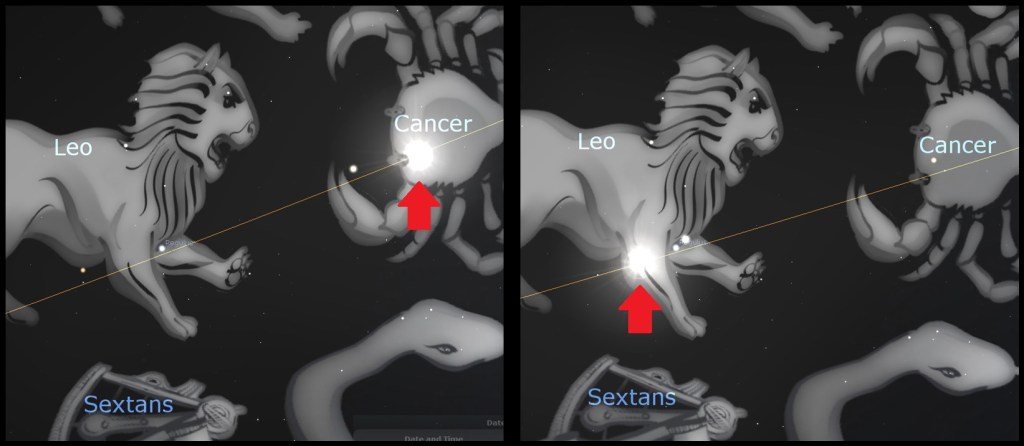
The It’s Written books also give tables for determining a person’s “Rising sign” and her “Moon sign.” The Moon sign tables are needed because the Moon takes “just about a month to pass through all of the [zodiac] constellations.” According to the tables, the Moon sign of our Jane Doe is Scorpio. “The Moon rules your emotions and inner moods,” the book tells young women, “telling you what you need to feel safe, comfortable, and loved.” In fact, the Moon was squarely in Virgo when Jane was born — two zodiac constellations off from the scorpion.
It’s Written says that the “Rising sign” or “Ascendant” is “the sign that was rising over the Eastern horizon (the place where the Sun rises each day) when you were born”. This sign “describes how you see the world and the people around you and how they see you”. According to the book’s tables, Jane’s Rising sign is Sagittarius. But in fact, the zodiac constellation that was rising at Jane’s birth was Virgo!
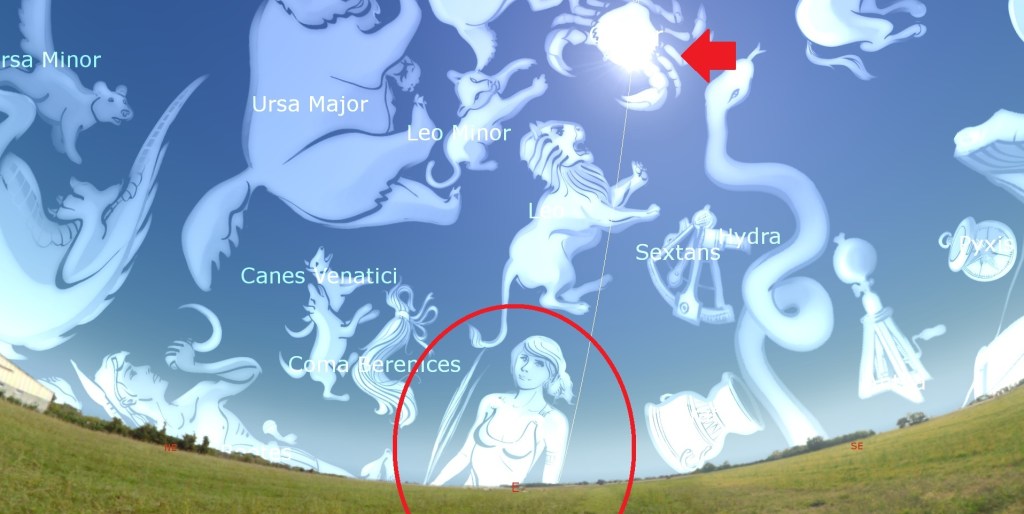
Obviously, the idea that there is some connection between astrology and the universe is bogus. Astrology says our Jane Doe is a Leo, with a Moon sign of Scorpio and a Rising sign of Sagittarius. The universe, seen in the real sky, says she “is” a Cancer, with Moon and Rising “signs” both Virgo. Even if the heavens did somehow connect with and affect us, astrology is actually disconnected from the heavens.
Physics vs. astrology
And the fact is, the heavens don’t affect us like astrology says. Historically, this has been known through the simple observation that plenty of people born very close together in time and place are very different from each other — an observation used by many against astrology, including in both the Christian and Muslim worlds where astrology has been considered bogus not only scientifically, but also theologically. Today, we can also calculate through basic physics what effects the heavenly bodies might have on us and see that those effects are utterly negligible.
This is especially true in the case of those stars that define the zodiac constellations themselves. According to It’s Written in the Stars, the stars of Virgo “Ascendant” on the eastern horizon at Jane Doe’s birth will influence her in one way (so as to “temper Leo’s love of drama,” and to cause Jane to perhaps “come across as less fun-loving than you really are” and be prone to getting “caught up in making things perfect”) whereas the stars of Sagittarius on that horizon will influence her in a dramatically different way (giving her a “sunny character” to match her “bright and breezy personality,” so she “makes friends with ease,” is a “natural leader,” full of “optimism and love of learning” with a “Sagittarius free spirit” that is “complemented by Leo’s staying power”).
But in fact, the effect that those distant stars of Virgo or Sagittarius could have had on our Jane at her birth was dwarfed by the effect of every object in the room where she was born. The gravitational pull at Earth of a Sun-like star located 10 light-years away, for example, is less than the pull of a quarter of a milliliter of water at a distance of 1 meter. And 10 light-years is pretty close, as stars go. Put another way, each bead of sweat on the head of Jane’s father as he encouraged her mother through the delivery would have had as much effect on Jane as the stars of her Rising sign.
The effect that those distant stars of Virgo or Sagittarius could have had on our Jane at her birth was dwarfed by the effect of every object in the room where she was born.
Tapping into science, but with unscientific assertions
It would be one thing if these books just said something like this:
Hey young people! Astrology is a religion. It is a system of belief based on the ancient idea that the Earth is the center of the universe, surrounded by a realm of ethereal lights that communicate to us what the gods, like Mars and Venus, have decided about us. This book is to help you learn about and believe in this religion. That will help you know yourself in accordance with what the gods have chosen, and that is good for you.
After all, all these books mention the ancient Aristotelian elements of Earth, Water, Air and Fire — the “Fifth Element” or “ether” of Aristotle’s heavens would fit right in. These books could just ignore modern science.
But no. Astrology for Black Girls specifically states that “astrology is not a religion” and “you don’t have to worship [for example] Mars or even believe he is real.” After all, who today would believe that the Earth sits at the center of a universe made of ether, and that Mars is a god? No one. We have rovers on Mars. It is a body made of rock and dirt. It is not a god, nor a god’s ethereal signal light.
So of course the books all tap into science — something a lot more credible to most people than Mars being ether and the Earth being the center of the universe. Thus, these books tell us that we are “connected” by “energies.” The planets circle the Sun in these books, not the Earth. They show Saturn having rings, something only visible with that modern scientific instrument, the telescope.
Countering science, but then calling on … science
Now, Secrets of Astrology claims that astrology is “a practical tool that …. also speaks to our need for a spiritual connection, a counter to the rationalism of modern science” and that astrology “does not fit into a scientific worldview” and requires that we “embrace ancient ideas of the universe.” Nevertheless, Secrets discusses the supposed astrological effects of Uranus, Neptune, and Pluto. None of these are visible to the eye; all three are known only thanks to modern science.
Secrets even includes the asteroid Chiron, orbiting out beyond Saturn! This, even though the asteroid Ceres, which the book does not include, is much larger than Chiron (actually a dwarf planet) and much closer (orbiting between Mars and Jupiter). Neither Chiron nor Ceres is visible without a telescope; neither was known to the ancients. Secrets includes modern scientific details about the stars in the Zodiac constellations: Regulus is “a blue-white giant, 80 light-years away,” while next to a star in Aquarius is “the Saturn Nebula; it looks like a greenish disk” (the nebula is visible only by telescope).
Yet these books tell young people very unscientific things. For example, The Junior Astrologer’s Handbook says that the planet Mercury undergoing retrograde motion* “pretty much makes everything go haywire” so that, for example, “something you’ve emailed may not arrive.” Astrology for Black Girls suggests that astrology explains why one person will get an A on a test with little effort when her brother gets a C+ despite much studying.
Such notions are highly problematic. If these things, and indeed the very essence of who you are, are determined by the stars, why bother to see if you really sent that e-mail, and perhaps work on improving your organization? Why bother to try to help your brother understand why his study habits are ineffective?
And the fact is, as we have seen, those stars that supposedly are determining it all are not actually where astrology says they are! We have to wonder whether, if smoking and snake oil both started surging in popularity, we would see prominent publishers producing books like The Junior Guide to the Health Benefits of Smoking and Snake Oil — specially written for young women.
—————-
*Retrograde motion is a real phenomenon. All planets generally move through the zodiac in the same direction as the Sun moves (for example, from Cancer toward Leo, as seen in the images here). However, because of the changing perspective between the Earth and each planet (not because of any change in actual motion), each planet will periodically reverse its motion through the zodiac for a span of weeks.
